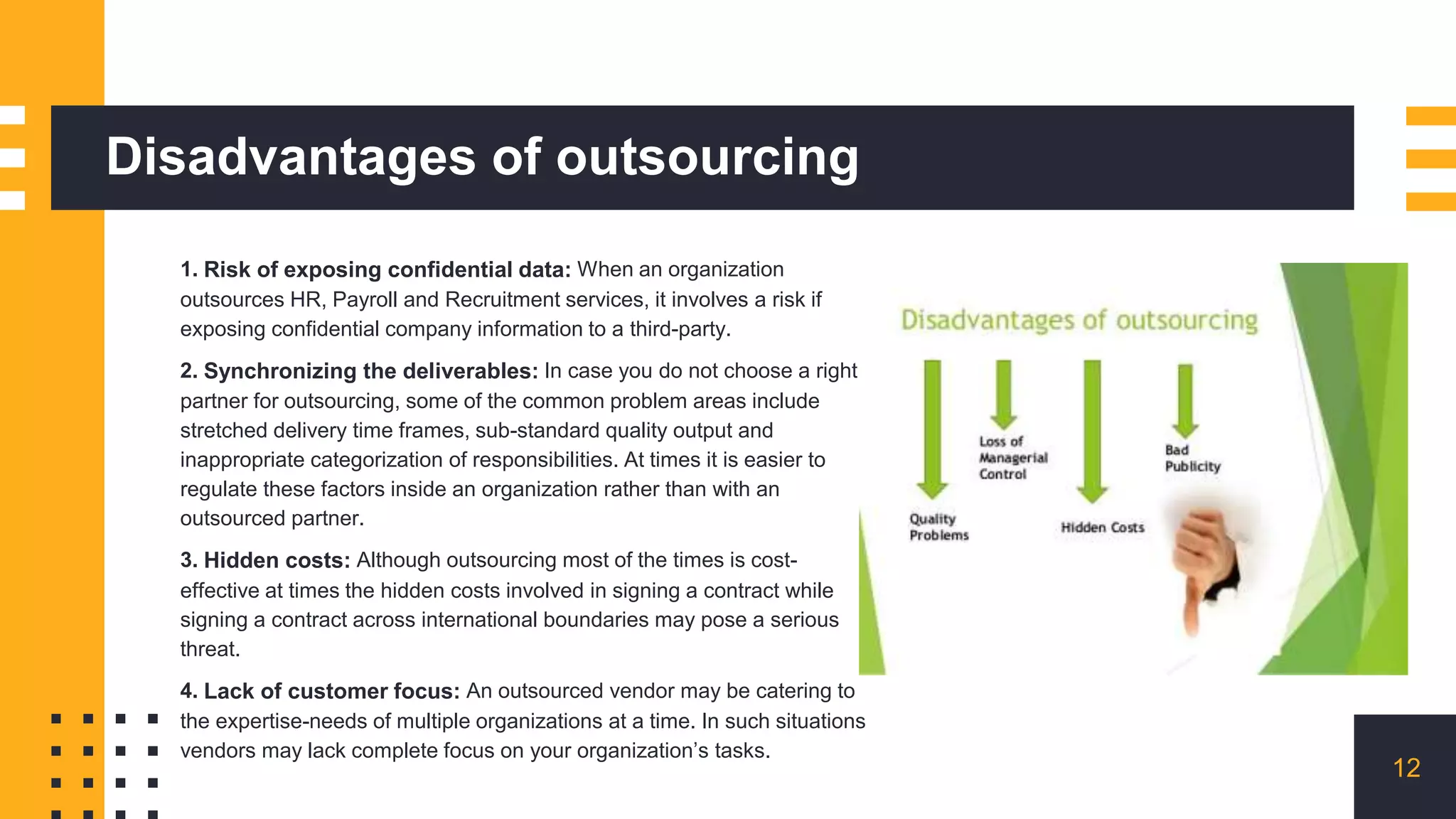What Are The Disadvantages Of Outsourcing
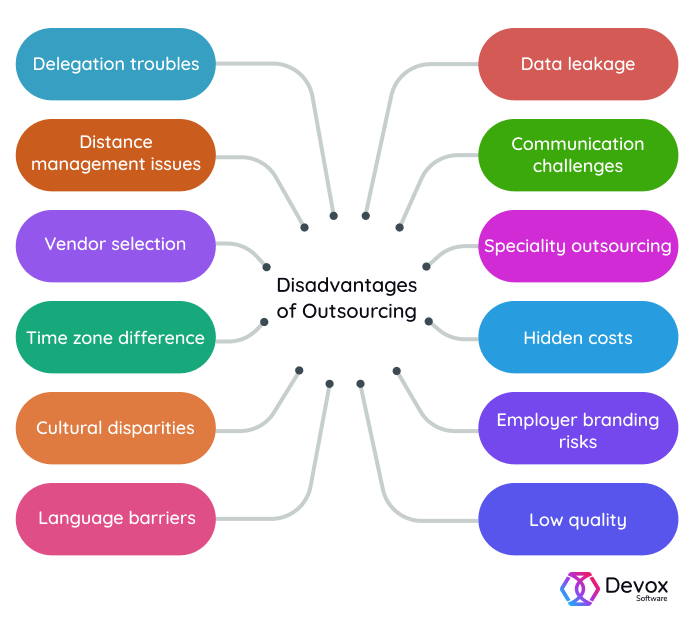
The practice of outsourcing, while often touted for its cost-saving and efficiency-boosting potential, is not without its drawbacks. Companies considering shifting operations to external providers must carefully weigh these disadvantages against the perceived benefits. This article examines the potential pitfalls of outsourcing, drawing on expert opinions and industry data.
At its core, outsourcing involves contracting out specific business functions to a third-party provider, often located in a different country. It's a strategy aimed at reducing costs, improving efficiency, and allowing companies to focus on their core competencies. However, this strategy can also present significant challenges.
Loss of Control and Quality Concerns
One of the primary disadvantages of outsourcing is the potential loss of control over key business processes. When a company delegates tasks to an external provider, it relinquishes direct oversight. According to a 2023 report by Deloitte, 47% of companies that outsource customer service experienced a decrease in service quality within the first year.
This lack of control can lead to inconsistent quality, communication breakdowns, and difficulty in ensuring compliance with company standards. The physical distance and different time zones can exacerbate these problems, making it difficult to monitor performance and address issues promptly. This can be especially problematic in industries where quality and consistency are paramount.
Communication Barriers and Cultural Differences
Communication barriers, stemming from language differences and cultural nuances, can hinder the effectiveness of outsourcing arrangements. Misunderstandings can arise, leading to errors and delays. Cultural differences in work ethic, communication styles, and business practices can also create friction and affect the overall success of the project.
Furthermore, differences in legal frameworks and ethical standards between the company's home country and the outsourcing destination can pose risks. Ensuring compliance with relevant regulations and maintaining ethical business practices can be challenging when dealing with overseas providers.
Security Risks and Data Breaches
Outsourcing sensitive data and processes introduces significant security risks. Sharing confidential information with third-party providers increases the potential for data breaches and intellectual property theft. In 2022, a survey by KPMG found that 55% of companies that outsource IT functions experienced a security incident related to their outsourcing arrangement.
Companies must implement robust security measures and conduct thorough due diligence to assess the security practices of potential outsourcing partners. Failure to do so can result in significant financial losses, reputational damage, and legal liabilities. The cost of implementing and maintaining these security measures can also offset some of the cost savings associated with outsourcing.
Moreover, reliance on external providers can create vulnerabilities in the supply chain. A disruption at the outsourcing provider's facility, due to natural disasters, political instability, or other unforeseen events, can severely impact the company's operations.
Job Displacement and Ethical Considerations
Outsourcing often leads to job displacement in the company's home country, raising ethical concerns. Layoffs and reduced hiring can negatively impact employee morale and create social unrest. While companies may argue that outsourcing creates new jobs in other countries, the immediate impact on domestic workers can be significant.
"The ethical implications of outsourcing cannot be ignored," says Dr. Emily Carter, professor of business ethics at the University of California, Berkeley. "Companies have a responsibility to consider the impact of their decisions on their employees and the communities in which they operate."
Furthermore, concerns about labor practices in some outsourcing destinations, such as low wages and poor working conditions, raise ethical questions about the social responsibility of companies that engage in outsourcing. Consumers are increasingly demanding that companies adhere to ethical and sustainable business practices, and outsourcing arrangements that exploit workers can damage a company's reputation.
Hidden Costs and Dependency
While outsourcing is often presented as a cost-saving measure, companies must carefully assess all potential costs, including transaction costs, monitoring costs, and contract negotiation costs. Hidden costs, such as the cost of managing the outsourcing relationship and addressing performance issues, can significantly reduce the overall savings.
Finally, over-reliance on outsourcing can create dependency on external providers. This can limit the company's flexibility and innovation, making it difficult to adapt to changing market conditions. A company that outsources too many critical functions may lose its ability to develop and maintain core competencies, ultimately weakening its competitive advantage.
In conclusion, while outsourcing can offer significant benefits, companies must carefully consider the potential disadvantages before making a decision. Loss of control, security risks, ethical concerns, and hidden costs are just some of the factors that must be weighed against the potential cost savings and efficiency gains. A thorough risk assessment and a well-defined outsourcing strategy are essential for mitigating these risks and ensuring a successful outcome.
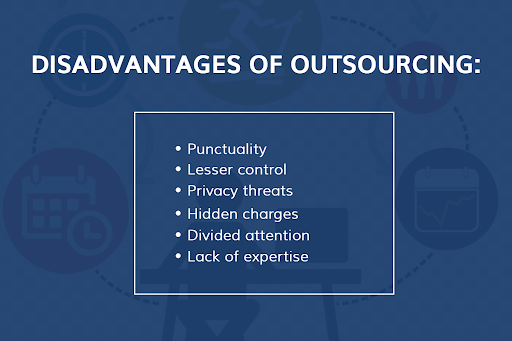
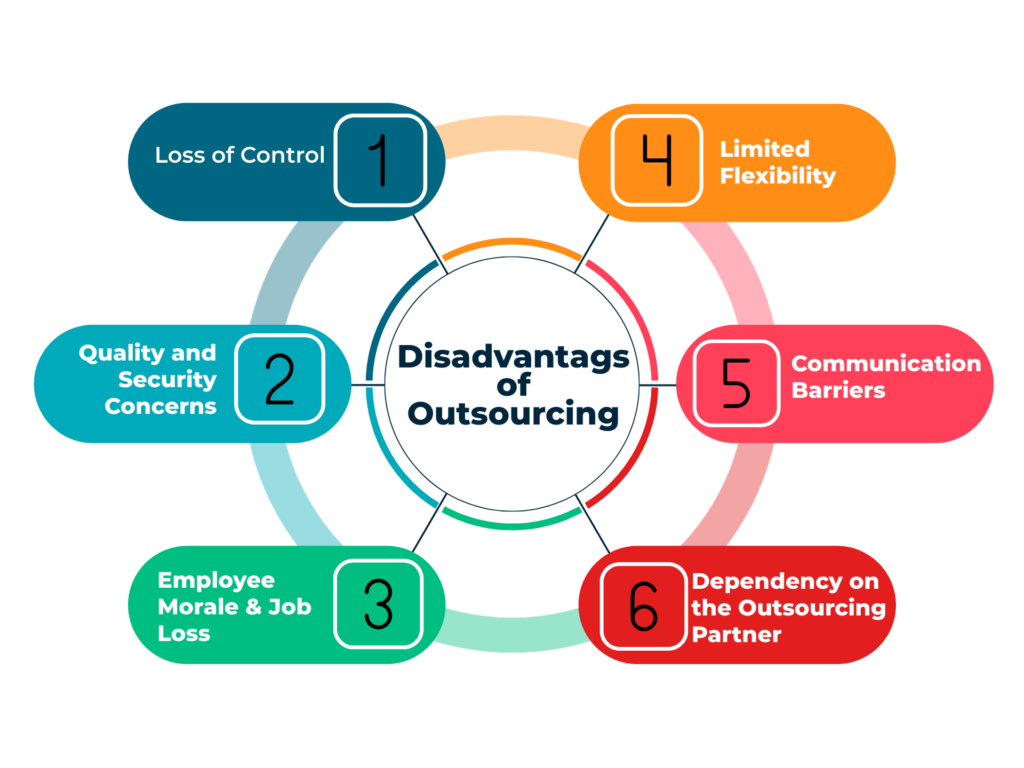
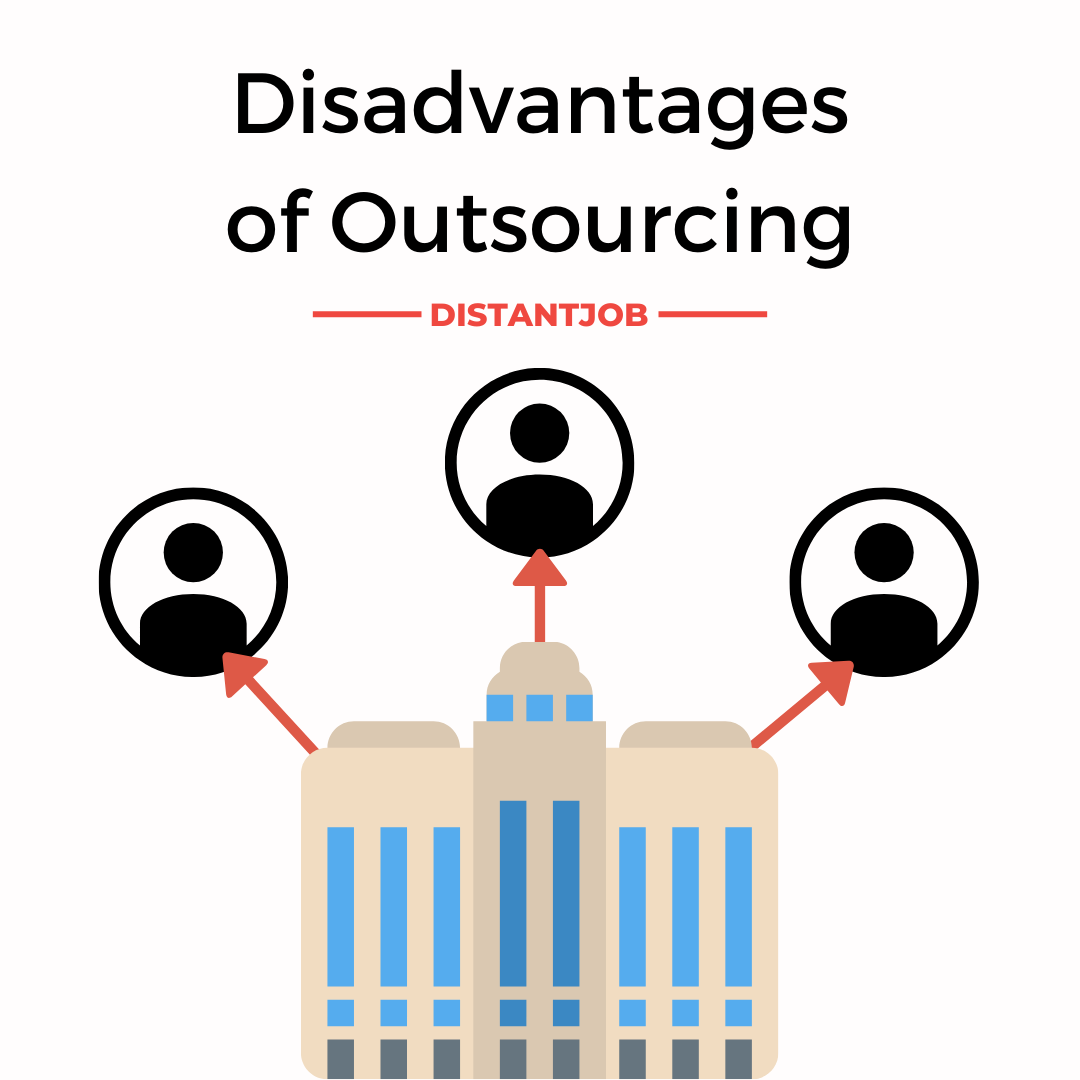
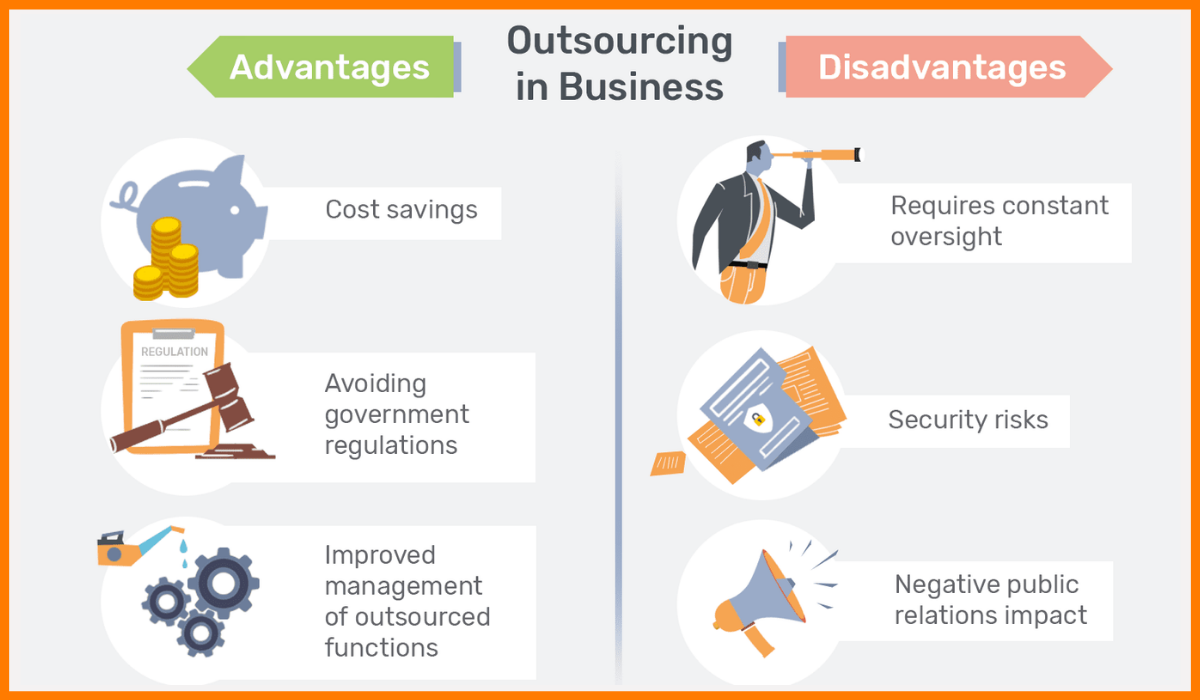
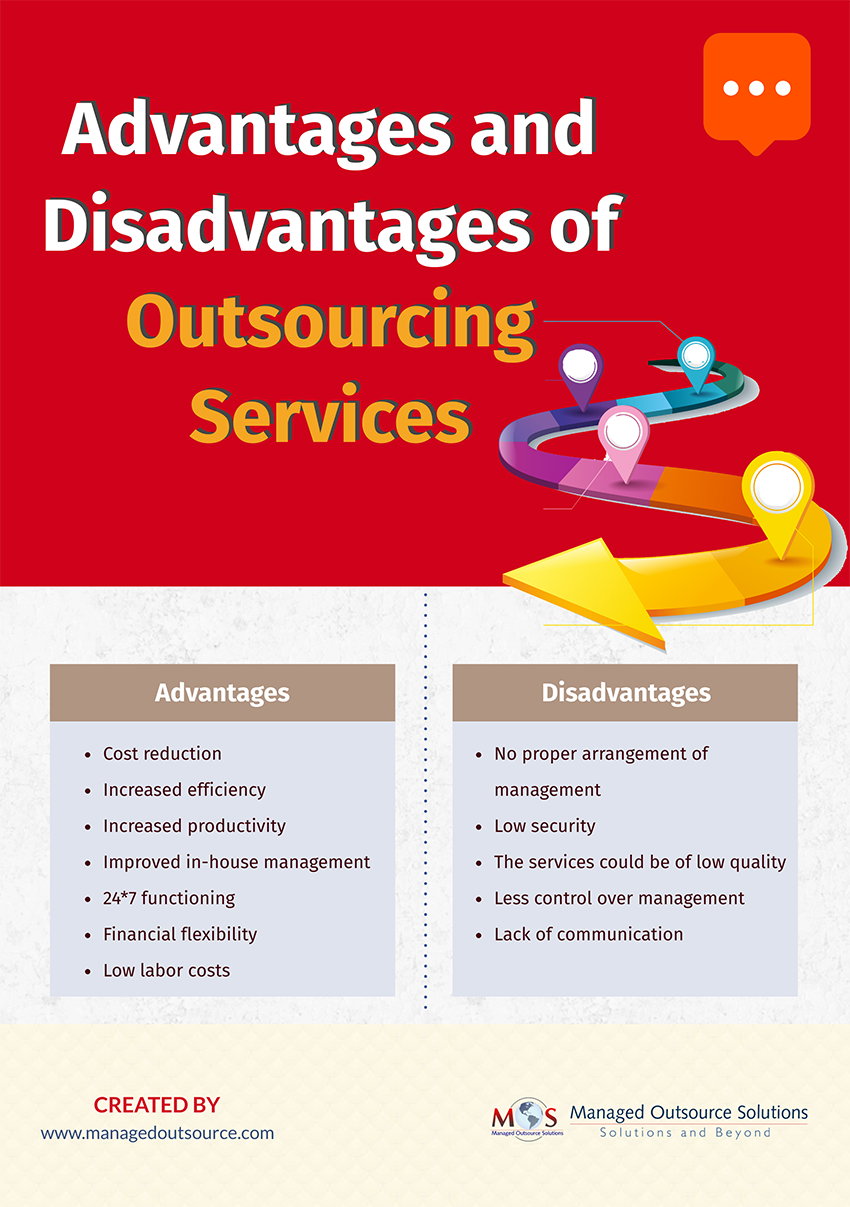
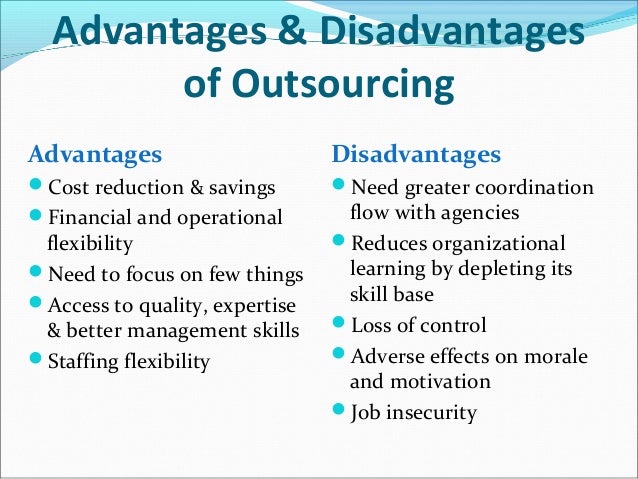

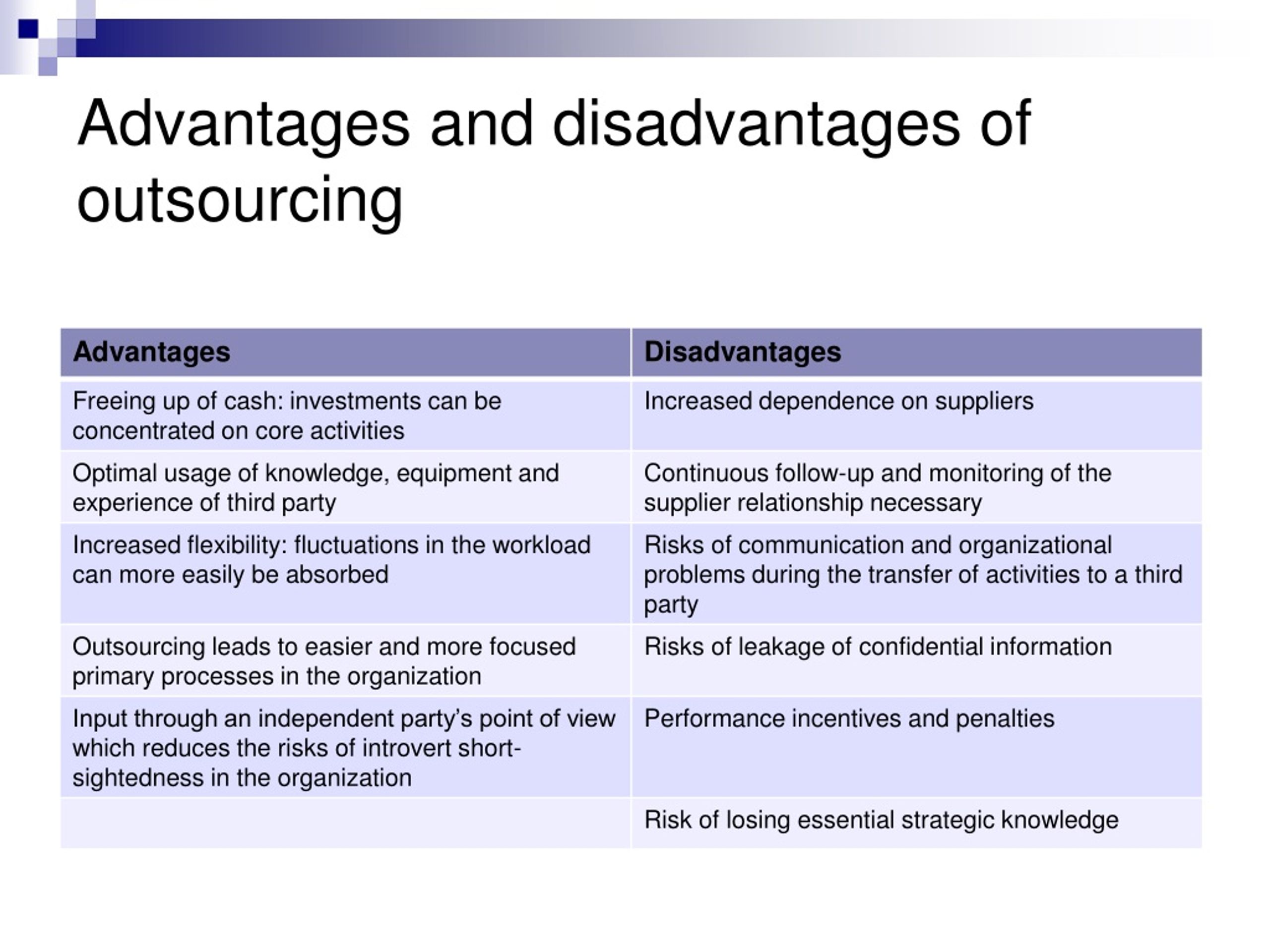



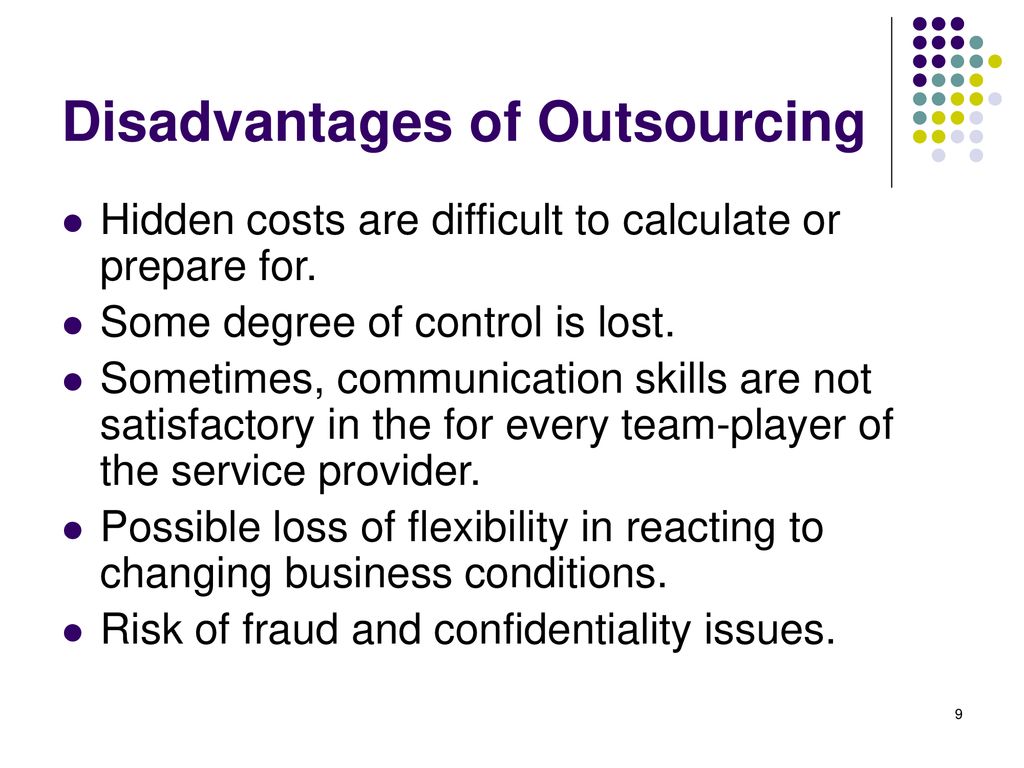
![What Are The Disadvantages Of Outsourcing IT Outsourcing: 8 Pros and Cons [2023]](https://global-uploads.webflow.com/622fa4d65a5fab0c3465af07/627938b52256a99d70dfe882_pros-cons-it-outsourcing-lists.png)




